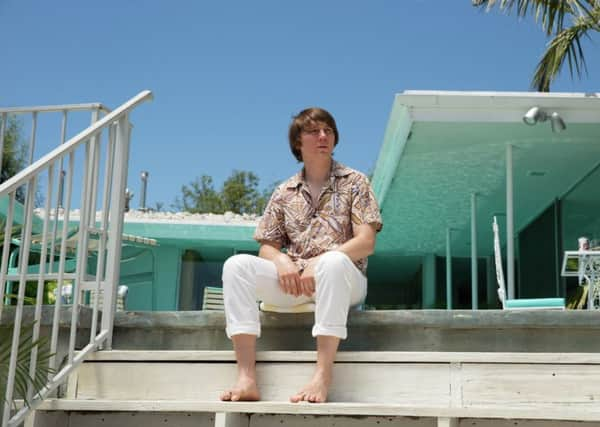Film reviews: Highlights of the EIFF


They’re certainly at the heart of Brian Wilson biopic Love & Mercy (****), which casts Paul Dano and John Cusack as the creative driving force behind The Beach Boys at two crucial stages in his life: the extraordinary period of mid-1960s creativity that birthed Pet Sounds, Good Vibrations and the compromised Smile project, and Wilson’s difficult attempts to get to grips with his mental illness in the 1980s.
As the film has it, both periods are complicated by domineering, manipulative figures: Wilson’s father in his younger days and, later on, his therapist Eugene Landy (Paul Giamatti), who became his legal guardian after getting him back on his feet following a bed-ridden breakdown. Both were abusive in different ways and the film’s decision to jump back-and-forth in time subtly illustrates how the psychic damage wrought by these controlling relationships unsettled Wilson’s already fragile mental state. Dano and Cusack are great at conveying this, but the film’s good too at capturing the manic, frequently thrilling way in which Wilson translated inspiration into instrumentation.
Advertisement
Hide AdControl and psychology of power is the subject of The Stanford Prison Experiment (****), EIFF regular Kyle Patrick Alvarez’s quietly horrifying dramatisation of the infamous 1971 university study in which a group of volunteer students were placed in a simulated prison environment – half of them cast as guards, the other half as inmates. The experiment was supposed to last two weeks but started going horribly wrong after the first day thanks to the speed with which some of the subjects embraced their authoritative roles. Cranking up the tension by gradually moving his camera in closer and closer to his actors, Alvarez smartly shrinks the distance between them and us in order to intensify the what-would-you-do? discomfort the experiment was designed to explore.
There’s plenty of discomfort too in The Closer We Get (***), Scottish documentary maker Karen Guthrie’s sometimes painfully intimate look at her own complicated relationship with her elderly parents. What initially appears to be something of a misery memoir detailing Guthrie’s transformation into a primary care-giver for her mother following a debilitating stroke is soon revealed to be something far richer and more intriguing as she delves into the secret life her father led while working in Africa for a decade when she was a kid. As such, the film functions as something of a bittersweet love letter to her mother and an explicit attempt to hold her stoic father to account for the effect his behaviour over the years has had on their family. If there’s a fault, it’s that Guthrie’s own narration can tend towards the purple, but the film’s good at illustrating the ways in which families almost can’t help but bruise one another. Hurting the ones you love is a theme of another Scottish offering. Sadly, Glasgow-set sex drama Swung (*), based on Ewan Morrison’s novel about the emotional impact of swinging on a journalist and her impotent partner’s relationship, is a dull and dour affair. The conceit of a journalistic investigation into sex is pure 50 Shades of Grey – and about credible. Ditto the risible dialogue, performances and terrible visual metaphors, which at one point includes a train whooshing past at the moment of climax.
• Love & Mercy, tonight and Thursday; The Stanford Prison Experiment, tomorrow, Cineworld; The Closer We Get, tonight, Filmhouse; Swung, tomorrow, Cineworld, www.edfilmfest.org.uk